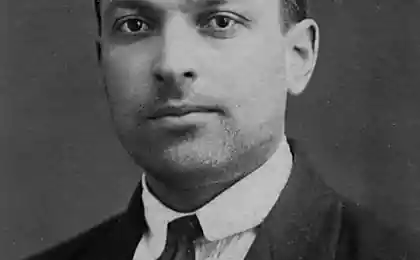649
15 facts of psychology, which will be useful during the interview
Employers - the same people, and they are subject to the same psychological tricks and have the same prejudices as everybody else. The site publishes a list of science-based techniques that will help you look more handsome, competent and promising candidate. 1. Ask for an appointment to 10:30 on Tuesday h2> According to the website Glassdoor, the most profitable time for the interview - the interviewer when convenient, not when it is convenient to you. So if you have a choice, how long to appoint a conversation offer in the region of 10:30 on Tuesday. At this time, you sobeseduyuschy people are more likely to be quite relaxed.
2. Avoid interviews in one day with strong competitors h2> Studies show that employers are comparing candidates with other people who were interviewed on the same day, and weak candidates came after strong, get an extra minus. In contrast, those who come to the interview after several weak candidates get an extra plus. Therefore, if you can find out when they interviewed your competitors, try to come to the day when it will not be the most qualified people.
3. Pick clothes for the desired image h2> Site CareerBuilder Survey shows that HR-managers and recruiters differently perceive different colors of clothing. 23% of them recommend wearing blue - it shows that the candidate is a team player. 15% recommend black - it shows leadership potential. 25% believe that orange - the color of bad talking about incompetence.
4. Consider the age of the person interrogating you h2> You can learn a lot about a person and what he wants to hear from you, knowing which generation it belongs. John Molidor and Barbara Parus, in his book Crazy Good Interviewing write that different generations interviewers are markedly different from each other:
5. Demonstrate palm h2> According Molidora and Sail, movement of your hands on the interview mean a lot. When you show the palm, it usually indicates your sincerity, but when you add up the palm, connected only by the fingertips - on your confidence. But keep your hand, palm down, it is not necessary - it says about your tendency to dominate. Moreover, it is not necessary to clean somewhere hands, people will think you have something to hide. If you drummed his fingers on the table - it is a sign of impatience when folds his arms across his chest - a sign of frustration. And if you're too waved his arms, it just distracts interlocutor.
6. Find something in common with someone h2> We love the people with whom we have common traits. So if, for example, you know that your partner appreciates volunteering - and you, too, like it - find a way to talk about it.
7. "Zerkalte" movement companion h2> People find other more sympathetic if they observe similar movements. Specialist in sign language Patti Wood says that, ideally, should be how to dance with another man, demonstrating that you are interested in the conversation that you are a team player. If the interviewee leans forward and puts his hands on the table, do the same. It is very likely he will not even notice that you are copying it.
8. Compliment, not trying to promote yourself h2> Psychologists have found that when people say something nice, and when it does not look artificial, such candidates are more likely to hire. The idea is that you praise the organization, show your enthusiasm for it, but do not tell immediately on its merits.
9. You both are confident and respectful h2> The authors Friend and Foe say that success in business - it is a consequence of both competition and cooperation. This means that during the interview, it is important to be able to show respect for the other person and at the same time confidence. For example, say: "I am delighted that you were able to do [in a certain area]. It reminds me of my work [in a certain area]. " You take the lead in the conversation, but have time to admire the merits of a potential employer.
10. Tell us about how you control the situation on previous work h2> To impress the person who conducts the interview, talk about their past experiences - about when you took the initiative. In one study, the sellers were listening to the description of a hypothetical situation (the customer comes to the store to buy things on the road, but does not know what he needs, you discuss with him different products, and he buys sunglasses and sunscreen). Then they were asked to rate how they feel responsible for the positive outcome. Employees who feel responsible for the purchase, usually received higher ratings from their supervisors.
11. Be honest about your weaknesses h2> When you answer the question "What is your main weakness?", The first thing I want to say something about their strengths, "Oh, I'm such a perfectionist"; "I have too much work ...».
12. Program yourself an influential h2> Weight Studies show that you can quite on their own look and feel more powerful in business situations. Participants of the study, who were asked to write about a time when they had the power over other people seemed to be more influential to other participants during the task. This impression is maintained even two days later.
13. Speak expressively h2> If you want to look smart, do not say monotone. Psychologist Leonard Mlodinow notes that if two people say the same words, but one says a little faster and louder, makes fewer pauses longer varies the volume of speech, it will appreciate the more energetic, knowledgeable and intelligent. Such speech reinforces your credibility and enhances the idea of your intelligence.
14. See the person in the eye when getting started with them h2> In one study, researchers asked participants to watch a video like strangers for the first time talking to each other, and then assess how smart each of the interlocutors in the video. People who regularly looked into the eyes of others, received higher marks.
15. Be friendly, but persistent h2> In one study, researchers stunning tried to find out why the candidates who appear anxious, less likely to get the job done. It turned out (at least in mock interviews) that the chances of these people do not undermine the nervous movements, and the fact that the more nervous people seem less warm and less assertive, and they speak slowly.
16. Demonstrates the potential h2> In the interview tempted to tell us more about their achievements. But studies show that the more important to focus on what you can do in the future, if you hire to work. Studies show that people find candidates more successful if they are told that they have shown a lot of potential.
























